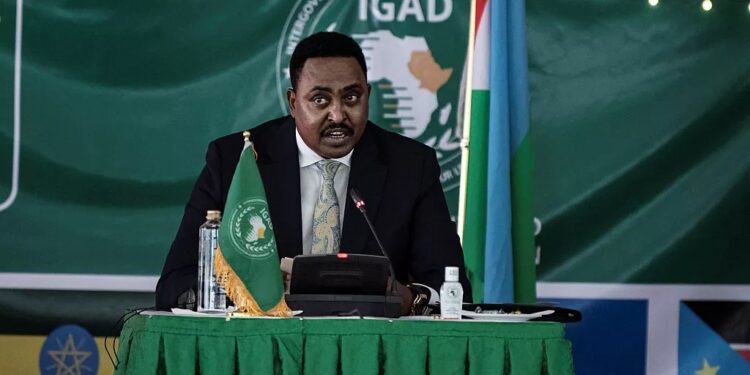The Inter-Governmental Authority for Improvement (Igad) has referred to as upon its member international locations to align diaspora transaction charges in an effort to extend remittance inflows. Throughout a gathering with central financial institution governors from Igad member states in Nairobi, Igad govt secretary Workneh Gebeyehu highlighted that regardless of the area receiving substantial remittances from overseas, transaction charges stay considerably increased than the worldwide common.
Comprising Djibouti, Eritrea, Ethiopia, Kenya, Somalia, South Sudan, Sudan, and Uganda, the Igad states at present face a median price of 8.9 % for receiving remittances, in comparison with the worldwide common of 6.5 %. This charge is sort of 3 times the goal charge set by the Sustainable Improvement Objectives, which goals for transaction charges beneath three %.
Furthermore, the price of transferring remittances throughout the Igad area stands at 10.6 %, increased than the speed for sending cash to the area. This makes intra-regional transfers costlier, presenting a problem for people in search of to ship cash amongst member states. Many remittances to the Igad area are nonetheless performed by way of casual channels, resembling carrying money throughout borders or utilizing unlicensed cash switch operators, which aren’t solely expensive but in addition unregulated and pose dangers of fraud and exploitation.
The World Financial institution stories that regardless of the worldwide financial disruption brought on by the Covid-19 pandemic, remittances to low and middle-income international locations reached a file excessive of $540 billion. Current research point out that globally, roughly 4 % of the world’s inhabitants, or 281 million individuals, dwell exterior their nation of origin. In 2021 alone, they despatched a staggering $781 billion in remittances.
Dr. Patrick Njoroge, the host governor, additionally emphasised the necessity to revise transaction thresholds to incorporate smaller ticket sizes. He famous that remittances don’t essentially have to be massive sums, and even smaller quantities resembling $20 or $10 could make a major influence. Dr. Njoroge highlighted the significance of catering to the wants of people throughout the backside of the pyramid and people with decrease revenue ranges.
By harmonizing diaspora transaction charges and selling formal channels for remittances, Igad goals to reinforce monetary inclusion, cut back prices, and create a safer atmosphere for senders and recipients. These efforts align with world tendencies in rising remittance flows and recognizing the significance of diaspora contributions to financial growth.









